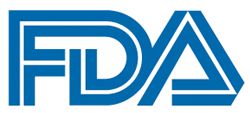Erdafitinib Granted FDA Approval in Bladder Cancer
Erdafitinib (Balversa) has been granted an accelerated approval by the FDA as a treatment for adult patients with locally advanced or metastatic bladder cancer with an <em>FGFR3</em> or <em>FGFR2</em> alteration that has progressed on platinum-containing chemotherapy, making it the first targeted agent to receive approval for metastatic bladder cancer.

Erdafitinib (Balversa) has been granted an accelerated approval by the FDA as a treatment for adult patients with locally advanced or metastatic bladder cancer with anFGFR3orFGFR2alteration who have progressed on platinum-containing chemotherapy, making it the first targeted agent to receive approval for metastatic bladder cancer.
"I've spent my career specializing in the care of patients with metastatic urothelial carcinoma and understand the need for new treatments for this disease,"Arlene O. Siefker-Radtke, MD, professor of Genitourinary Medical Oncology, The University of Texas MD Anderson Cancer Center, and lead study investigator, said in a statement. "Balversa is an important new therapy for this small subset of patients with urothelial carcinoma who, up until now, had limited treatment options."
The FDA granted the agent's approval based on results from a study which showed erdafitinib induced an overall response rate (ORR) of 32.2% in patients with FGFR2/FGFR3-positive locally advanced or metastatic bladder cancer. The ORR comprised a complete response rate 2.3% and a partial response rate of nearly 30%.
An FDA-approved companion diagnostic device should be used in patient selection for erdafitinib, the agency noted. Accordingly, the QIAGENtherascreen®FGFR RGQ Reverse-transcription (RT)-polymerase chain reaction (PCR) Kit was simultaneously approved as a companion diagnostic for use with erdafitinib.
Patients in the pivotal trial experienced side effects including increased phosphate level, mouth sores, feeling tired, change in kidney function, diarrhea, dry mouth, nails separating from the bed or poor formation of the nail, change in liver function, low salt (sodium) levels, decreased appetite, change in sense of taste, low red blood cells (anemia), dry skin, dry eyes, and hair loss, according to the FDA press release.
“We’re in an era of more personalized or precision medicine, and the ability to target cancer treatment to a patient’s specific genetic mutation or biomarker is becoming the standard, with advances being made in new disease types. Today’s approval represents the first personalized treatment targeting susceptible FGFR genetic alternations for patients with metastatic bladder cancer,” Richard Pazdur, MD, director of the FDA’s Oncology Center of Excellence and acting director of the Office of Hematology and Oncology Products in the FDA’s Center for Drug Evaluation and Research, said in a statement.
“FGFRs regulate important biological processes including cell growth and division during development and tissue repair. This drug works by targeting genetic alterations in FGFRs,” added Pazdur.
The accelerated approval of erdafitinib in bladder cancer is contingent on the results of a confirmatory trial.